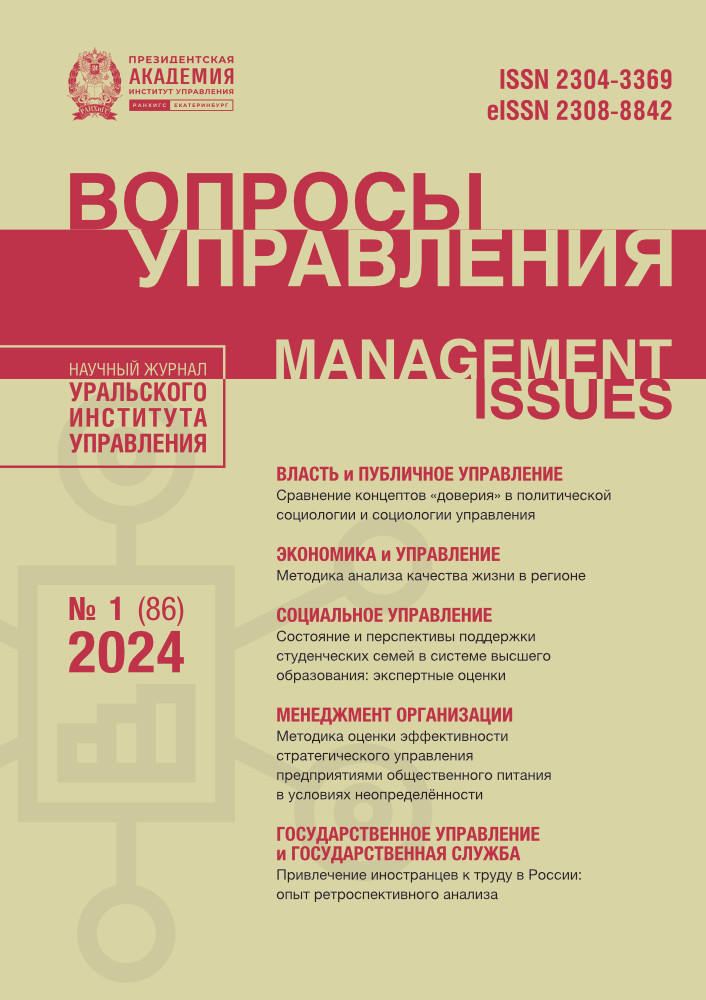COMPARING ‘TRUST’ CONCEPTS IN POLITICAL SOCIOLOGYAND SOCIOLOGY OF GOVERNANCE
DOI:
https://doi.org/10.22394/2304-3369-2024-1-5-19Keywords:
доверие, социология управления, политическая социология, политическое доверие, доверие в управлении, доверие в социологии.Abstract
Introduction. This article systematizes, analyzes and compares the concepts of trust in two sectoral
sociologies: management sociology and political sociology. As an analysis of literature sources has shown,
such a comparison has not yet been made by anyone from the scientific community. The author attempted
to separate the concept of trust in order to demonstrate their substantive diversity.
Although many researchers have already covered the topic of trust, few of them have considered the
complex nature of measuring and classifying trust. Most authors exploring the issue of trust do not categorize
it across scientific disciplines, which creates methodological differences that can disrupt the research process
and lead to incorrect results.
Methodology and methods. In this section of the article, the author, using general scientific methods of
comparison and analysis, attempted to theoretically and methodologically separate the problem of trust.
The basis is the classical theories of the study of trust, which are used by scientists when developing and
studying the problem of trust in their fields of science.
Results. In the current part of our article, we showed a comparison of two concepts of trust, based on the
works by domestic authors in the field of studying the sociology of management and political sociology, as
well as on the conducted research.
Discussion. There are several differences in the ‘active-passive’ trust dyad, consisting primarily in further
analysis of sociological subjects. In the case of political sociology, these are the consequences of political
decisions related to citizens, and in the sociology of management, changes in the processes of making and
implementing management decisions, as well as changes in the management process itself. In the ‘personalinstitutional’ dyad trust, both types are studied in political sociology, while in the sociology of management
personal trust is not studied for a number of reasons. It should also be noted that political sociology is focused
on diagnosing the problem of trust in society, and the sociology of management, in turn, offers developed
scientific and practical technologies for solving these problems. This clearly demonstrates the difference in
approaches to the conceptual study of trust in sociology











